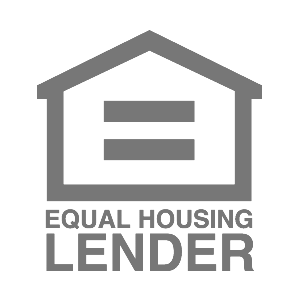
Credit card debt is a big problem. Between 2022 and 2023, the average balance on credit cards grew by 10%, and the number of late payments people made on their cards rose by more than 50%.
With the average APR on credit cards approaching 27.89%, it’s getting more expensive to miss a payment and even harder to catch up when you fall behind.
What can you do if you’re not able to cover a credit card payment? You’d be surprised by how much help is available. If you think you’re going to miss a payment or you recently fell behind on the bill, there are steps you can take to reduce the damage and get the account back on track.

Get the cash you need with a low-interest personal loan today
In This Article
What happens if you miss a credit card payment?
It’s important to be proactive about credit card payments since the penalties for missing one are steep. Even if your payment is just a day late or a dollar short, you risk compounding your debt with late fees and a higher interest rate.
If you’re late by 30 days or more, you risk seriously damaging your credit scores.
Each credit card has a different set of terms (meaning the fees and rates for the card) that kick in when you make a late payment or an underpayment, but here’s what you can generally expect:
| Days late | Penalties | Credit damage |
| 1-29 | -Late fees -Penalty interest rate kicks in -Grace period is suspended -Ability to access and earn credit card rewards might be suspended |
|
| 30-179 | -Late fee may increase -Minimum monthly payment may increase -Interest fees continue to accrue -Any 0% APR promotion might be canceled |
-A late payment appears on your credit reports for every 30 days late and stays there for seven years -Credit scores drop with each new late payment |
| 180 | -Account may be closed -The debt may be sold to a debt collector -Card rewards may be forfeited |
-Collection account appears on your credit report -Potentially severe damage to your credit scores |
4 ways to avoid missing credit card payments
Even if you don’t have the money for your upcoming credit card payment, you might be able to avoid falling behind. One or more of the following strategies can help:
1. Contact the credit card company ASAP
Best for: Someone who’s about to fall behind or who’s less than 30 days late.
It’s normal to assume your creditor doesn’t care about you, but you’d be surprised what they’ll do for a struggling customer.
If you’re experiencing a financial hardship, such as a layoff, medical emergency or divorce, your credit card issuer (and your lenders) may have programs to help.
For example, American Express has a Financial Relief Program that can reduce your credit card payments and fees for 12 or 48 months.
Before you fall further behind, contact the credit card company to see if any of the following are available:
- Change your due date: Some creditors allow you to change your payment due date one or more times during the lifetime of the account. You might even be able to push it back yourself through your online account.
- Hardship payment plan: Your creditor may have special payment plans or programs that temporarily give struggling customers lower APR, reduced monthly payments or suspended annual fees.
- Reverse fees: If you miss a payment, but otherwise have a history of paying on time, the creditor may be willing to cancel the late fee and remove the penalty APR.
Pros and cons
- Stay in good standing with the creditor
- Reduce fees and credit damage
- Payment plans may decrease your card limit or suspend your account, which can cause a temporary drop in your credit scores
2. Debt Management Plan (DMP)
Best for: Someone who needs long-term help getting their credit cards under control.
A debt management plan (DMP) is a special payment plan you can enroll in through a nonprofit credit counseling agency.
With a DMP, the counseling agency works with your creditors to set up a new payment arrangement, potentially with reduced interest rates, lower monthly payments and waived late fees.
If you qualify, you’ll send the agency a monthly payment, which they distribute to your creditors.
Here are some accredited nonprofit agencies that offer DMPs:
- American Consumer Credit Counseling (ACCC)
- The National Foundation for Credit Counseling (NFCC)
- Take Charge America
Not everyone qualifies for a DMP, but even if you don’t, you’ll still get to work with a credit counselor who can advise you on improving your finances and help you determine if other strategies, such as creditor negotiations or bankruptcy, are a better fit.
Pros and cons
- Consolidate credit card payments
- Potential for lower monthly payments, interest rates and fees
- Establish a credit card payoff date
- Potential positive impact on your credit scores in the long term
- You may have to close some or all of your credit cards, which can hurt your scores in the short-term
- Agency fees range from $7-70 a month (income waivers may be available)
3. Zero APR balance transfer credit card
Best for: Someone with good credit whose financial hardship will be resolved in the short-to-mid term.
If you know your financial difficulties will come to an end within the next year or so, you might want to apply for a 0% APR balance transfer credit card.
You can use these cards to pay off other credit card debt, and carry the transferred balances for a set period of time—usually up to 21 months—without accruing interest charges.
During the 0% introductory period you’ll still have to make minimum monthly payments on the new card, but the interest-free period can reduce your overall monthly debt bill and let you redirect cash to other expenses.
Pros and cons
- Temporary reduction in interest and monthly debt payments
- Consolidate credit card accounts
- Good credit is required to qualify
- Balance transfer fees are usually 3%-5% of the transferred amount
- APR can be high after the intro period ends
4. Use your equity
Best for: Someone with good credit and equity in their home or vehicle.
If you have equity in your home or vehicle, meaning the property is worth more than you owe against it that equity could help solve your problem.
There are a variety of loans that allow you to cash out some of your equity and use it to cover credit card bills and other expenses. Here are some options to consider:
- Equity loan: Home equity loans and auto equity loans give you a lump sum of money, equivalent to a portion of your equity, that you pay back (plus interest) in installments.
- Cash-out refinance loan: A cash-out refinance gives you money to pay off your original loan, plus extra cash you can use for other purposes. The payments or interest rate on the new loan may even be lower than your original loan.
Pros and cons
- Lower APRs than credit cards
- Payments are usually higher than credit cards since there’s a set payoff date
- It could take up to 60 days to receive the loan funds
- You could lose your property if you miss payments
Frequently asked questions for when you can’t pay credit cards
Will missing a credit card payment hurt my credit scores?
If you miss a credit card payment by at least 30 days, you will likely see a negative impact on your credit scores. The missed payment could appear on your credit reports for seven years. However, the damage done to your credit scores will decrease throughout that period.
What is considered a ‘missed’ credit card payment?
Your credit card company considers a payment late if it’s made one day after the due date or if it’s less than the minimum amount due. For credit reporting purposes, a payment is considered late if 30 days have passed since the due date.

Get the cash you need with a low-interest personal loan today
Will my credit card company help me if I can’t make my payment?
There’s a chance your credit card company may offer you some flexibility on your payment, especially if you’re experiencing a financial hardship that’s beyond your control. If you need help, immediately inform the creditor of your situation and ask what help is available.
Written by Sarah Brady
Sarah Brady is a financial writer and speaker who’s written for Forbes Advisor, Investopedia, Experian and more. She is also a former Housing Counselor (HUD) and Certified Credit Counselor (NFCC).
Read more:
- What Increases Your Total Loan Balance?
- How Does a HELOC Impact Your Credit
- How Much Does Your Credit Card Really Cost?
- Why Did My Credit Score Drop?
- Debt Relief: How it Works and 4 Common Questions
Eligibility for a home equity loan or HELOC up to the maximum amount shown depends on the information provided in the home equity application. Depending on the lender, loans above $250,000 may require an in-home appraisal and title insurance. Depending on the lender, HELOC borrowers must take an initial draw of the greater of $50,000 or 50% of the total line amount at closing, except in Texas, where the minimum initial draw at closing is $60,000; subsequent HELOC draws are prohibited during the first 90 days following closing; after the first 90 days following closing, subsequent HELOC draws must be $1,000, or more, except in Texas, where the minimum subsequent draw amount is $4,000.
The amount of time it takes to get funds varies. It is measured from the time the lender receives all documents requested from the applicant and depends on the time it takes to verify information provided in the application. The time period calculation to get funds is based on the first 4 months of 2023 loan fundings, assumes the funds are wired, excludes weekends, and excludes the government-mandated disclosure waiting period.
For Texas home equity products through Prosper, funds cannot be used to pay (in part or in full) non-homestead debt at account opening.
Depending on the lender, qualified home equity applicants may borrow up to 80% – 95% of their primary home’s value and up to 80% – 90% of the value of a second home. In Texas, qualified applicants may borrow up to 80% of their home’s value. HELoan applicants may borrow up to 85% of the value of an investment property (not available for HELOCs).
Home equity products through Prosper may not be available in all states.
All home equity products are underwritten and issued by Prosper’s Lending Partners. Please see your agreement for details.
Prosper Marketplace, Inc. NMLS# 111473
Licensing & Disclosures | NMLS Consumer Access
